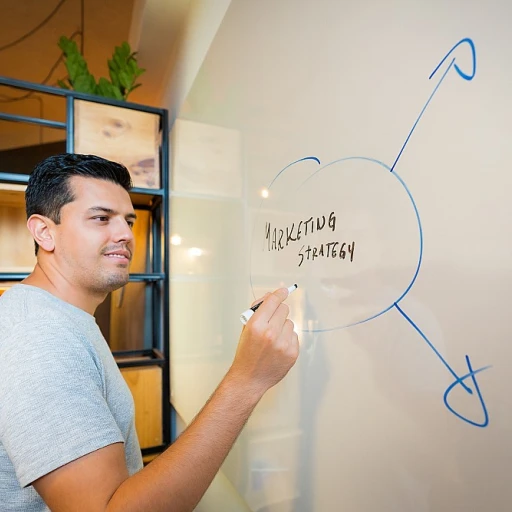Understanding Worker Capital in the Digital Age
Decoding Worker Capital in Today's Digital World
In the fast-evolving landscape of social media influence, understanding worker capital is crucial for influencers looking to leverage their platforms effectively. Worker capital refers to the collective economic and social power that individuals possess by virtue of being part of a workforce. This concept has undergone significant transformation in the digital age, with social media amplifying its impact. To begin with, influencers harness worker capital by engaging with their audience as active participants—each follower representing a potential asset that contributes to growth. The digital revolution has reshaped how we perceive labor rights and the role of content creators as part of an interconnected web of economic interactions. As influencers, realizing the value of your audience can transform your online presence into a formidable worker-owned venture. A critical component of worker capital is human capital, encompassing skills, knowledge, and expertise. Influencers must consistently invest in their professional development, akin to how a trade union advocates for worker financial wellness and rights. This investment reaps rewards not only in economic growth but also in labor productivity, thereby enhancing your social media influence. Furthermore, being aware of the financial implications and understanding your role within the broader economic ecosystem is paramount. Responsible investment strategies can guide influencers in maximizing not only their monetary gain but also the value offered to their audience. By aligning with global unions and labor productivity initiatives, you'll position yourself as a leader in the digital economy. Navigating the unseen costs of worker capital remains a challenge for many. The pursuit of financial growth often comes with corporate responsibilities, underscoring the importance of wellness initiatives and committee workers’ roles in supporting this delicate balance. Be mindful of the intricate web of relationships between asset managers, pension funds, and private equity firms as you transit through the social media influence landscape. Ultimately, understanding worker capital requires a multifaceted approach: realizing the power of community, recognizing financial and human rights, and maintaining a focus on sustainable growth. Exploring the unique challenges of social media influence in today's dynamic environment is essential to making informed investment decisions and optimizing your influence.Building Your Personal Brand as an Influencer
Crafting a Unique Identity
In the bustling world of social media, building a personal brand is akin to establishing a unique identity that resonates with your audience. This process involves a strategic investment in your human capital, as it requires not just creativity but a deep understanding of your audience's needs and preferences. Your brand should reflect your values, vision, and the unique perspective you bring to the table. This identity becomes a valuable asset in the digital economy, enhancing your visibility and influence.
Engaging Content as a Core Asset
Creating engaging content is at the heart of building a personal brand. This content serves as a reflection of your labor productivity and can significantly impact your growth as an influencer. It's essential to consistently produce high-quality, relevant content that aligns with your brand's message. By doing so, you enhance your capital worker, making your brand more appealing to both followers and potential business partners. Consider leveraging data solutions to maximize your content's potential and keep your audience engaged over time. Maximizing the potential of investment data solutions can be a game-changer in this regard.
Strategic Partnerships and Collaborations
Forming strategic partnerships with other influencers or companies can significantly boost your brand's reach and credibility. These collaborations often act as responsible investments, enhancing your worker capital and opening new avenues for growth. By aligning with brands that share your values and vision, you not only expand your audience but also enhance your financial wellness. Such partnerships are a testament to your brand's value in the broader business ecosystem.
Maintaining Authenticity and Trust
While building a personal brand, maintaining authenticity is crucial. Your audience values transparency and honesty, which are key to fostering trust and loyalty. This trust is an integral part of your human capital, as it strengthens your relationship with your audience and enhances your brand's reputation. Upholding labor rights and human rights in your content and collaborations can further solidify this trust, positioning you as a responsible and ethical influencer in the eyes of your followers.
Monetizing Your Influence: Turning Capital into Revenue
Transforming Influence into Financial Prosperity
As an influencer, leveraging your social credibility to capitalize on financial gains is a pivotal step towards sustainable economic growth. The digital realm presents vast opportunities to convert your worker capital into a thriving revenue stream. But achieving financial wellness requires a strategic approach.
Maximizing Asset Potential Through Strategic Partnerships
To monetarily capitalize on your social influence, engaging with businesses and companies is essential. Whether it’s via sponsored content, brand partnerships, or affiliate marketing, establishing mutually beneficial relationships can significantly enhance your financial health. Responsible investment in these partnerships ensures alignment with your audience's values and enhances the human and economic capital you bring to the table.
Exploring Alternative Revenue Streams
Beyond traditional endorsements, diversifying your income sources can solidify your financial foundation. This could involve memberships, exclusive content offered to subscribers, or leveraging product equity through collaboration on merchandise or digital offerings. By understanding the dynamics of worker ownership and personal brand development, influencers can effectively navigate private equity opportunities, turning labor into profit.
Investing in Personal Development for Enhanced Financial Returns
Continuous self-improvement acts as a solid investment in both human and worker capital. Engaging in learning initiatives and enhancing skills contribute to better productivity and a broader influence sphere, thereby attracting more lucrative opportunities. As influencers take charge of their financial rights and focus on personal and economic development, they effectively increase their negotiation power in the corporate world.
Leveraging Pension Funds and Asset Managers
Pension funds and asset managers play a crucial role in the financial ecosystem of worker capital. By understanding and collaborating with these financial entities, influencers can find avenues for long-term sustainable growth, aligning wealth accumulation strategies with personal and professional goals. Harnessing tools such as the impact of capital can aid in navigating these financial terrains wisely.
Navigating Challenges: The Unseen Costs of Worker Capital
Unveiling the Hidden Costs
In the realm of social media, the allure of becoming an influencer often overshadows the unseen costs tied to worker capital. While influencers invest in building their personal brand, the financial and human capital required can be significant. The initial outlay for equipment, software, and marketing can strain personal finances before any revenue is generated. This financial investment is a critical aspect of the influencer journey, demanding careful consideration and planning.
Balancing Work and Wellness
As influencers, maintaining a balance between productivity and personal wellness is crucial. The pressure to constantly produce content can lead to burnout, affecting both mental and physical health. Implementing wellness initiatives can help manage stress and ensure sustainable growth. Influencers must prioritize their well-being to maintain their creative and economic output.
Economic Implications and Responsibilities
With great influence comes great responsibility. Influencers play a role in shaping economic trends and consumer behavior. They must navigate the ethical considerations of their endorsements and partnerships, ensuring they align with their values and the interests of their audience. This responsibility extends to supporting labor rights and advocating for fair practices within the industry.
Community and Collective Power
Joining forces with other influencers and forming communities can amplify worker capital. These networks provide support, share resources, and foster collective growth. Engaging with global unions and trade unions can further enhance the influence and reach of worker-owned initiatives. By leveraging these collective assets, influencers can drive responsible investment and advocate for corporate rights.
Understanding these challenges is essential for influencers aiming to convert their capital into long-term success. The journey requires not only financial acumen but also a commitment to human rights and ethical practices. By navigating these complexities, influencers can transform their worker capital into a powerful asset in the digital economy.
The Role of Community in Enhancing Worker Capital
The Collective Strength of Community Connections
Building a strong community around your worker capital is crucial in social media influence. A robust worker ownership network not only amplifies your reach but also provides significant support and camaraderie. This collective power can enhance your labor productivity and reinforce your message. Communities function as a network of human capital where individuals can share ideas and resources for mutual growth.
Community: A Financial Asset
Community engagement can also serve as a financial asset. By collaborating with other influencers and organizations, such as global unions or trade unions, you can leverage shared economic growth strategies. These connections may lead to responsible investment opportunities and create pathways for worker financial benefits.
Strengthening Economic Ties
The role of community extends to enhancing your position within the broader economy. Through collaborations with asset managers and pension funds, you can contribute to the development of a corporate business environment that respects labor rights. By aligning with committee workers and focusing on wellness initiatives, your influence can drive both economic and worker capital growth.
A Focus on Human and Worker Rights
Participating in communities committed to human rights and labor productivity will enhance your ability to create meaningful change. Hosting wellness seminars or discussions on worker financial health within your community can increase your capital's value and impact. A focus on financial wellness, combined with worker-led advocacy, enhances your standing as a responsible influencer in the digital economy.
Future Trends: Evolving Worker Capital in Social Media
Anticipating the Shift: The Future of Worker Capital in Social Media
The landscape of worker capital in social media is poised for transformation as technological advancements and cultural shifts continue to influence how labor, productivity, and economic growth are perceived. With changes come opportunities for influencers to grow their personal brands and maximize their economic impact.Worker-owned platforms and responsible investments are gaining traction as influencers push for more control over their financial health and productivity. As workers increasingly demand corporate transparency and accountability, the concept of worker ownership may extend to influencer-driven businesses. This could result in more equitable distribution of corporate shares and profits.
Moreover, the role of human capital is evolving, as businesses emphasize the importance of mental and physical wellness initiatives. Influencers can take advantage of this trend by promoting financial wellness and advocating for labor rights, which can improve overall business productivity and drive economic growth.
As global unions continue to advocate for labor rights, influencers have the opportunity to shape public discourse and support human rights endeavors. By collaborating with trade unions and participating in the committee for workers, they can amplify their voice in labor productivity discussions, thus expanding their asset in capital worker domains.
Looking ahead, the role of private equity and pension funds in the worker capital ecosystem is likely to grow. Influencers will need to stay informed and engaged with evolving economic trends and participate in responsible investment strategies. By doing so, not only can they enhance their own worker financial position, but they can also contribute to a more equitable and sustainable economy.













